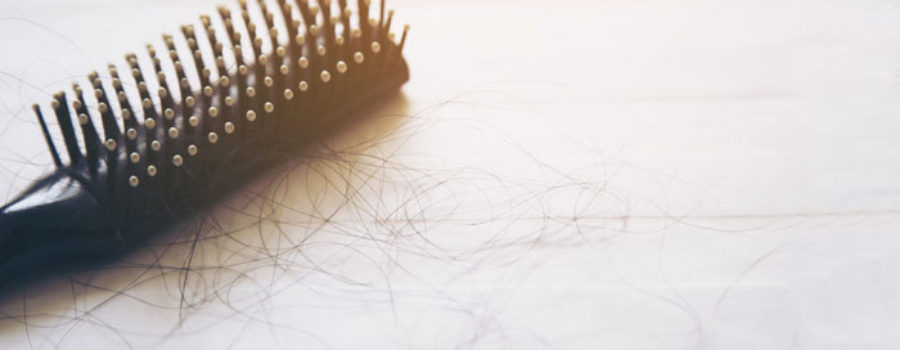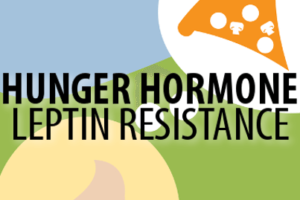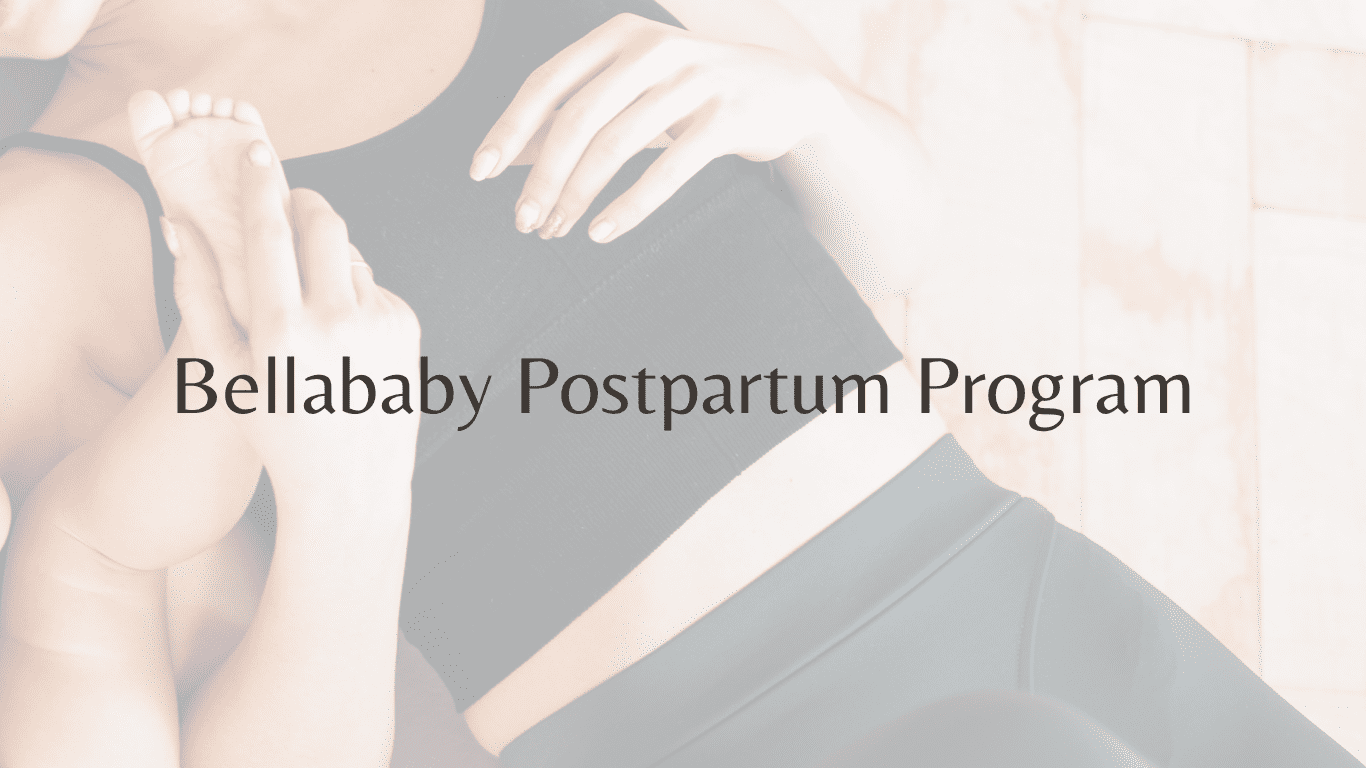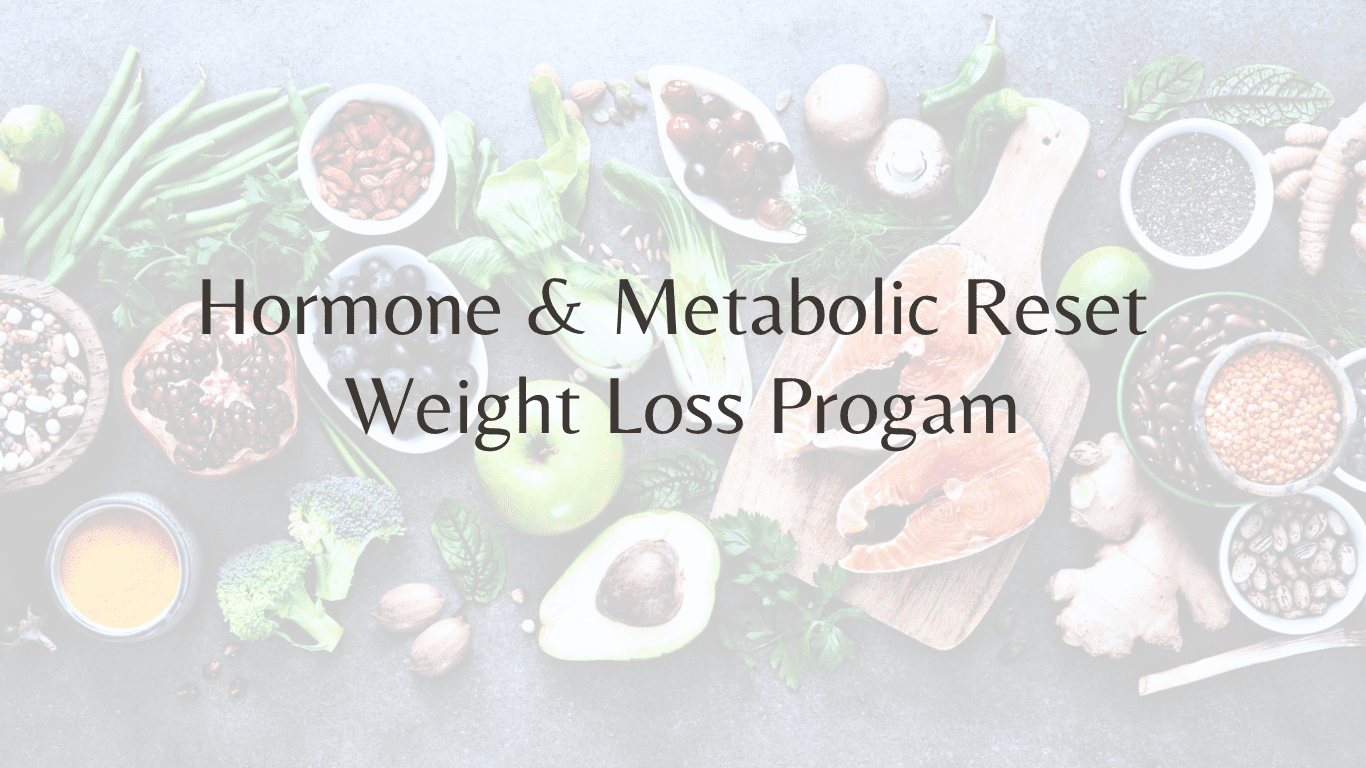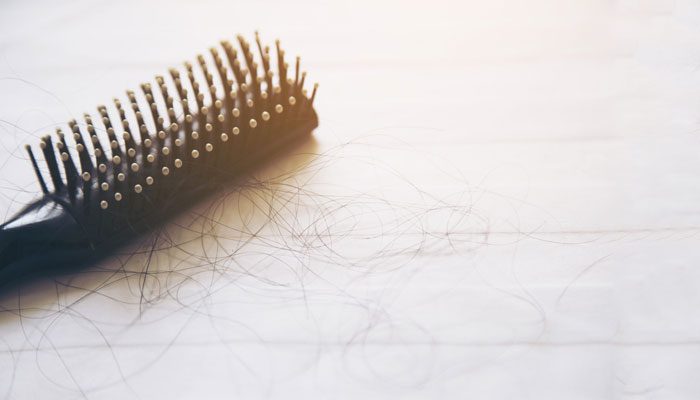
Hair loss. It sucks. In women it’s a taboo topic. It’s embarrassing. But it happens, a lot.
I have many women messaging and emailing me about their struggles with their hair. From hair falling out to thinning hair to dullness and breakage, I hear your cries loud and clear. I’ve been there.
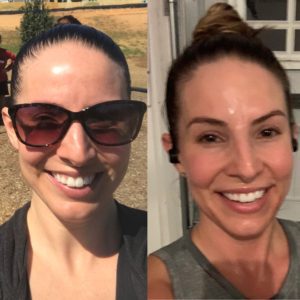
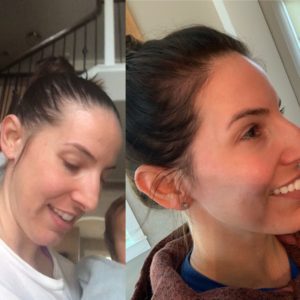
My Story: I breastfed my 3rd son for 2 years, that time of extended breastfeeding (even though I ate a very healthy diet and focused on hormone balancing as a lifestyle) took a major toll on my hair. And not immediately, I was about a year or more into nursing him when I really started to notice how bad it was. It was worse than it had ever been with my first two children. Officially, the term for this particularly lovely side effect of pregnancy, childbirth and breastfeeding is postpartum alopecia, and as many as 90 percent of women will have a form of it. Shedding hair at a noticeable rate in the first two to six months after having a baby is not unusual. But if you (like me) feel the shedding is not slowing down, chances are good that there are other health issues at play.
Hair loss is particularly prevalent in our modern society. People are nutrient deficient due to the standard american diet, many are dealing with gut health issues, and others have hormonal imbalances. There are several different types of hair loss, but the majority of hair loss cases have a similar root cause and a similar approach to addressing it. The good thing is there is a solution and more importantly, your hair loss can tell you what’s going on with your hormones and your health, so pay attention!
- Patchy? You may have a cortisol imbalance, a deficiency in B vitamins or zinc or heavy metal exposure.
- Thinning? You may have a hormonal imbalance, such as thyroid.
- Top of the head only? Testosterone, progesterone, cortisol or estrogen may be out of balance.
- Total body hair loss? DHEA, blood sugar regulation or circulation may be at play.
- Balding all over? You may be experiencing poor circulation or a deficiency in protein, essential fatty acids, B vitamins, silicon or zinc.
First off, let’s talk about why we lose our hair…
Reason #1: Childbirth and Breastfeeding – this is an obvious one and although not all women experience pregnancy or breastfeeding hair loss, having and/or being the primary source of nourishment for a baby means all your nutrients are going to baby and breastmilk first, before they go to you. Combined with the stress and lack of sleep that goes along with having a baby (I’m talking during pregnancy, post pregnancy and while breastfeeding), hair loss is a common side effect of all of this.
Reason #2: Iron Deficiency – hair follicles requires a lot of iron and typically, due to heavy periods and stress, iron tends to be low in women. Ask your doctor for a iron test, sometimes referred to as “iron studies.” The typical range for iron is between 11-27. Ideally, you want to be on the higher end. If you are low, consider taking an iron supplement, specifically iron bisglycinate which is gentle on the stomach.
Reason #3: Your Thyroid – having too low or too high thyroid hormone could lead to hair loss as your hair follicles are very sensitize to thyroid hormone. Think of it like this, your thyroid governs metabolism in your body, so in regards to your hair, your thyroid governs the metabolism of hair growth, specifically hair follicles. Have your doctor check for thyroid antibodies, specifically Anti TPO (Anti thyroid peroxidase) and Anti TG (Anti thyroglobulin), which are the two autoimmune antibodies that attack the thyroid gland. Women who have high levels of these antibodies are diagnosed with Hashimoto’s thyroiditis.
Reason #4: Blame Your Birth Control – from depleting zinc (another critical hair nutrient) to shutting down your own production of estrogen and progesterone (which your hair loves), the birth control pill wrecks havoc on your hormones and in turn, makes your hair lack lustre, dull and causes it to fall out. Some pills actually cause a shrinkage in hair follicles due to containing more androgen like hormones.
Reason #5: You Are Not Ovulating – this could obviously be due to taking the birth control pill (which of course stopping is your best defence against supporting your hair growth), or due to a condition such as PCOS. Ovulation is when you produce your beneficial estrogen and progesterone, which your hair so badly needs in order to grow and thrive. It’s important to track your cycle (either through an app or manually) as well as check cervical mucus throughout the month to know when or if you are ovulating. If you are thinking of coming off the pill so that you can support your hormones naturally or are thinking about having a baby, know that your hair loss could potentially get worse before it gets better. This is normal as your body (more so your ovaries) have to adapt to producing hormones again.
Reason #6: Stress – I think we all know the detriment stress can have on our hormones and overall health. Having high levels of stress and not managing it effectively can lead to an imbalance in hormones, weaken your immune system and deplete important nutrients.
Reason #7: A Really Shitty Diet – I think it’s safe to say that you know where I stand when it comes to food. If you’re diet is looking a little beige and lacking vibrant fruits and vegetables, healthy fats, pasture raised organic meats and variety, there’s a good chance your not getting essential nutrients and vitamins that help to support your hair growth. Ditch the sugar, ditch the coffee, ditch the processed foods and start eating REAL food.
So now that we know what can cause hair loss, what can we do about it? Well, first you want to make sure you’ve taken care of all of the above issues and had important tests done. Then from here, there are a few things you can consider doing…
- Take an iron supplement, if you are low.
- Take zinc, roughly 15-25mg once a day on an empty stomach.
- Take magnesium, which is essential for progesterone production and helps to combat the negative effects of stress.
- Take Omega 3’s, like NutraSea or Nordic Naturals fish oil. You can also include more omega’s in your diet from cold water fish, such as salmon, mackerel, sardines and anchovies. Flaxseeds, walnuts, hemp hearts and chia seeds are also great sources of omega’s and can easily be sprinkled into salads or added to smoothies
- Be sure your vitamin D levels are normal and if not, consider taking a vitamin D+k2 supplement
- Stop using generic drug store shampoos and conditioners. With all the parabens, sls and toxic chemicals lurking in these products, they are doing your hair no good! Instead, choose organic and natural brands.
- Ditch the inflammatory foods, such as gluten, wheat, dairy and sugar.
- Eat more vegetables (preferably organic) and dark leafy bitter greens to support liver detoxification.
- Eat lots of high-quality protein sources. Healthy hair starts from within. Good sources of protein are chicken, eggs, legumes, and fish. Salmon, for instance, offers omega-3 fatty acids and protein that will support a healthy scalp and hair growth.
- Consider ditching the pill
- Be patient. I know we all want our hair to grow back fast, but the truth is, whatever is happening to your hair now, was most likely due to something that happened 3 months ago. Yes! Your hair has a ‘memory’ and is sensitive to whatever is happening in your environment, both internally and externally. Were you under lots of stress 3 months ago? Were you eating poorly? Stopped taking your vitamins? Think back 3 months to what might have happened in your life and with your body.
Standard hair loss treatments typically involve topical remedies like steroid injections, shampoos, and creams that are supposed to stimulate hair growth. Occasionally these will work temporarily, but it has been my experience with myself and other women that this method is ineffective long-term, if at all.
That’s because standard hair loss treatments are not designed to get to the root of what caused your hair loss to begin with. The root of all disease, and hair loss, is inflammation, so it’s important to determine where that inflammation is coming from. If you’re just masking the symptoms that make you uncomfortable with a fancy shampoo, you’re not addressing a potentially life threatening problem that will manifest in other ways if ignored.
Don’t let that terrify you, though! I hear from women all the time who are experiencing hair loss and just haven’t known what avenues to take in order to get to a root cause. After focusing more on stress management, and getting high amounts of MICRONUTRIENTS over macronutrients, my hair finally grew back and is thicker than ever.
If you’re looking for hormonal help, want natural solutions to treating your hormonal imbalances, and at the end of the day, want your healthy hair back, email me at lyndsay@bellatrixfit.com and let’s chat. We can discuss if working together is the right solution for you!
With lots of love,
Lyndsay
xoxoxo

